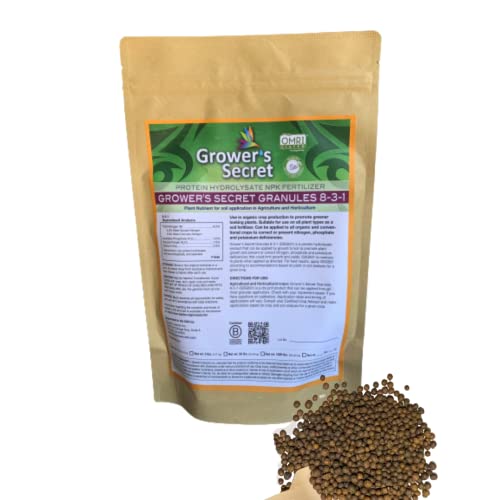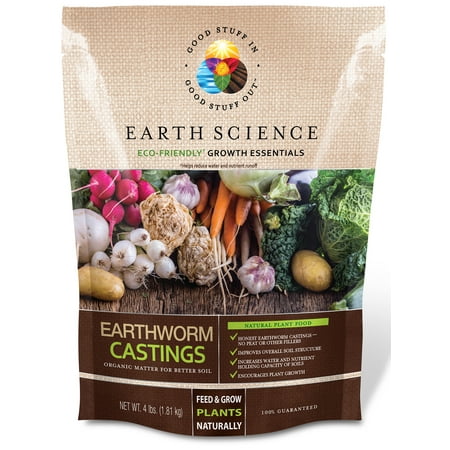4 Things Good Gardeners Do to Make Outdoor Containers Grow Quicker — Tricks for a Yard That Looks Fuller, Fast
Get your containers summer-ready with our expert tips on encouraging super-quick plant growth and sensational flowers.
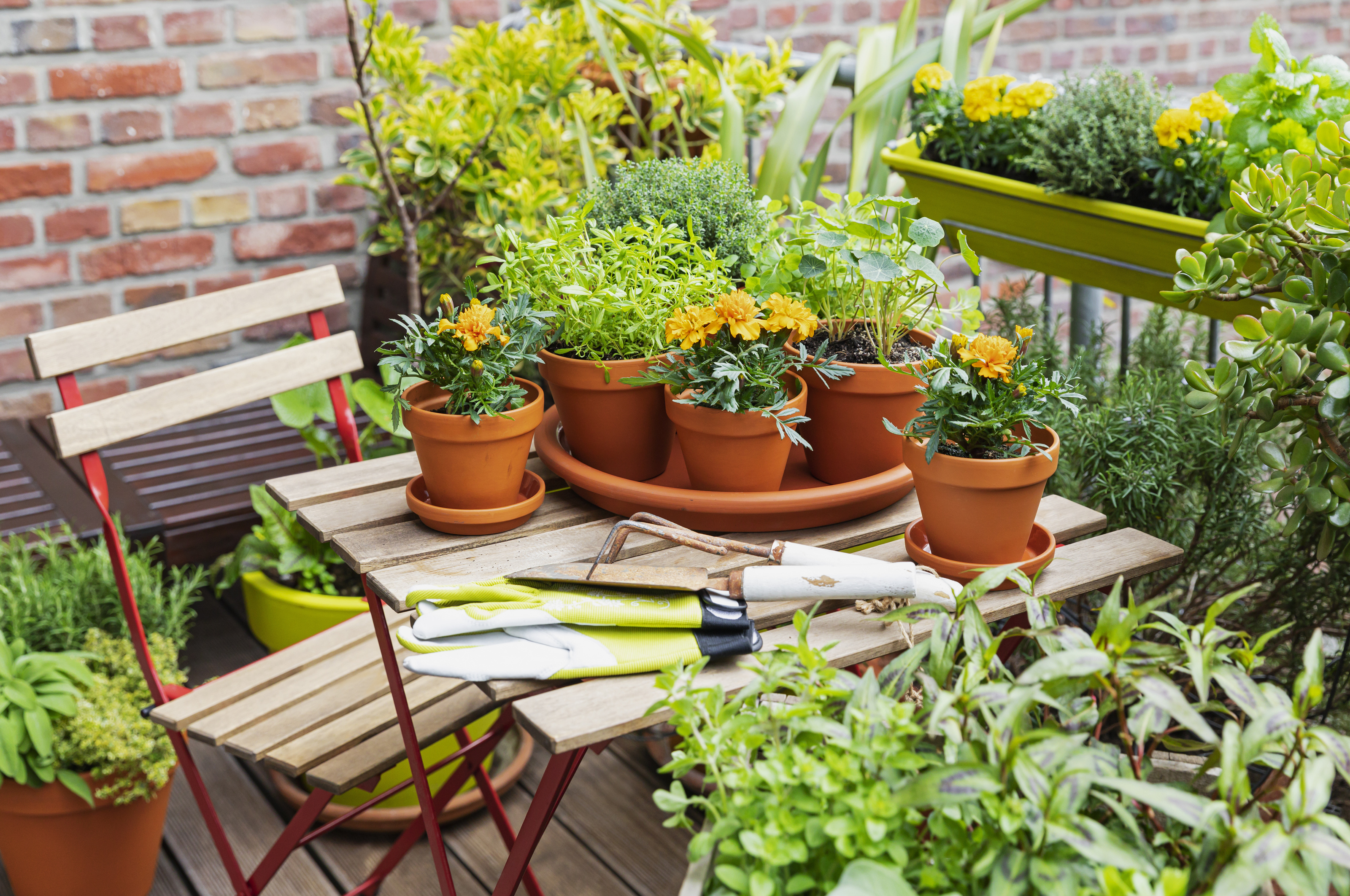
The Livingetc newsletters are your inside source for what’s shaping interiors now - and what’s next. Discover trend forecasts, smart style ideas, and curated shopping inspiration that brings design to life. Subscribe today and stay ahead of the curve.
You are now subscribed
Your newsletter sign-up was successful
The sun is starting to shine and the evenings are finally getting lighter (thank you daylight savings!). It’s official, summer is just around the corner which means for us gardeners, the hard work begins now!
If you’re looking at your yard or balcony thinking you’ve missed the boat for this summer, don’t panic. There’s still time to get your containers in order before the big summer bloom! But maximizing your container gardening growth is going to be crucial to how good your yard looks at the start of the season.
According to our expert, there are a number of ways you can speed up growth in your container plants. So if you’re looking to put some life back into your balcony or patio before summer hits and accelerate your flowers, pay attention, because our expert has all the advice you need!
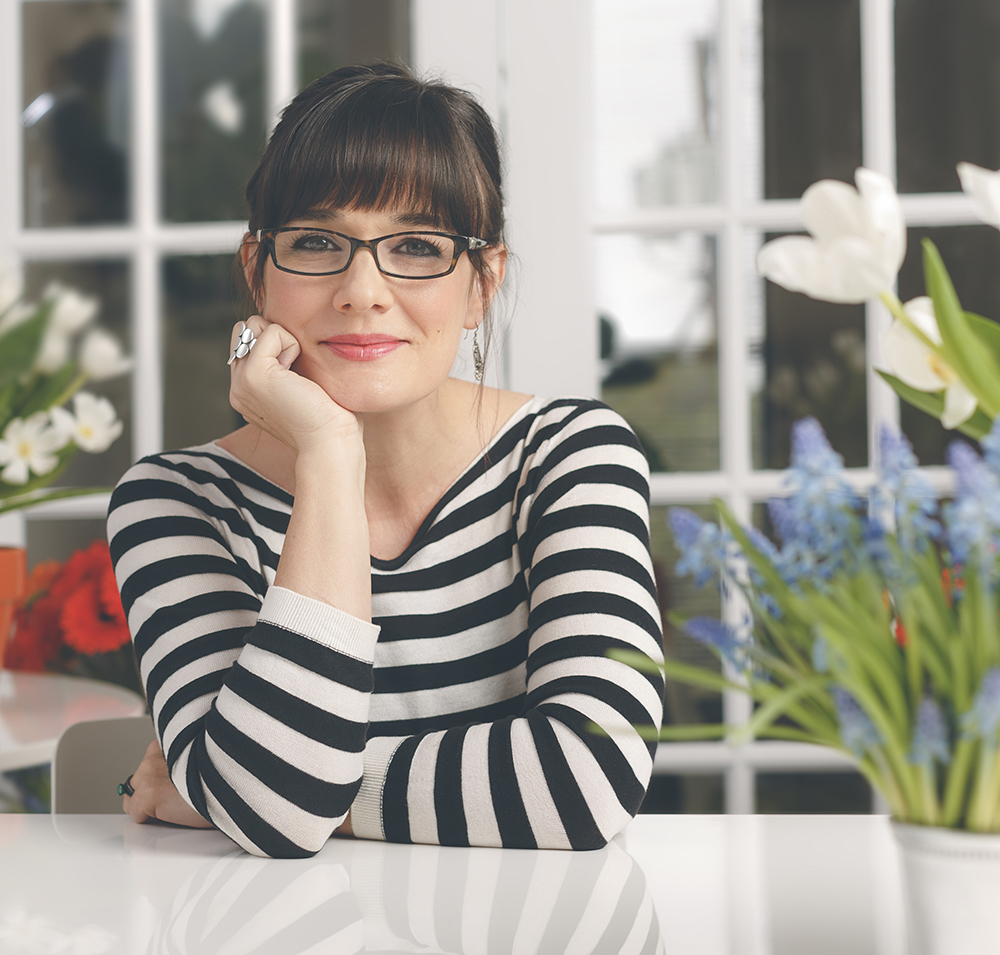
Leslie F. Halleck is a Certified Professional Horticulturist (American Society of Horticulture Science) and UCLA Extension Horticulture Instructor who has spent more than 30 years hybridizing horticulture science with home gardening consumer needs.
1. Feed them with fertilizer
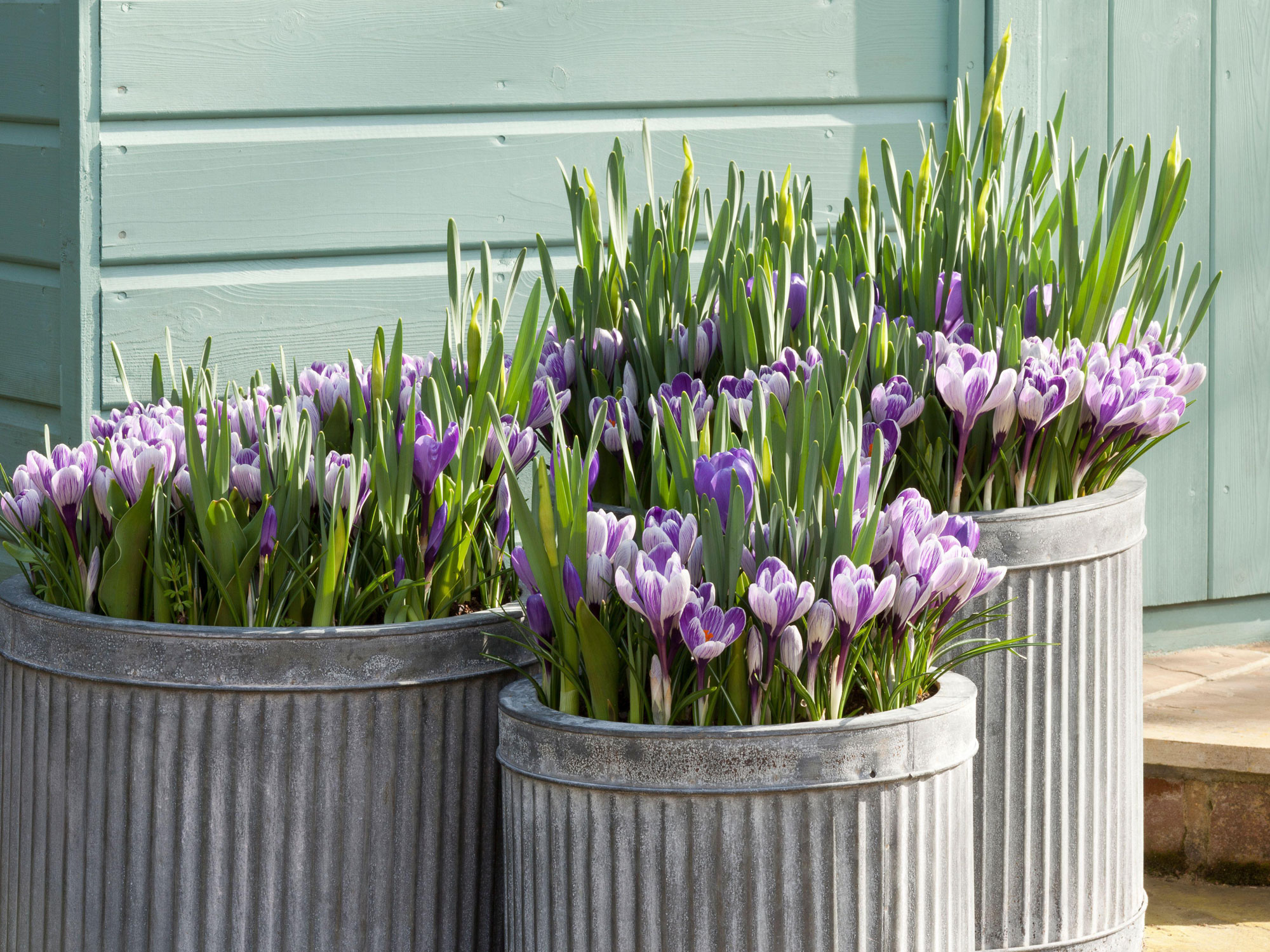
Fertilizer can be a tricky subject. Some plants love it, some definitely don’t. So paying attention to your individual container plant’s needs is key to ensuring they thrive.
'How, when, and what you fertilize with always depends on the plants you’re growing, environmental conditions, and season,' Horticultural expert Leslie Halleck explains. 'Are your plants foliage, flowering, or fruiting plants? Each has its own nutrient balance and frequency needs. Dig a little deeper and get to know the plants you’re growing before deciding on a fertilizer or schedule.'
But what’s the best fertilizer for container plants? 'Generally speaking, using an all-purpose granular fertilizer with a 3-1-2 N-P-K ratio (like this one from Amazon) is best' says Leslie. 'I find fertilizers that contain 10-15% nitrogen content often provide best results for encouraging and maintaining new growth in outdoor container plantings – but many plants thrive with less nitrogen or lower concentration organic feeds.'
Leslie’s top fertilizing advice: know your product. 'Coated slow-release fertilizers may be applied to containers once every 3-4 months if you are unsure about how to fertilize. Though their downside is that you won’t know they are used up until your plants show symptoms,' Leslie explains.
The Livingetc newsletters are your inside source for what’s shaping interiors now - and what’s next. Discover trend forecasts, smart style ideas, and curated shopping inspiration that brings design to life. Subscribe today and stay ahead of the curve.
'Liquid and water-soluble fertilizers may need to be applied monthly, biweekly, or even weekly depending on the product and concentration, but application rates can be more closely controlled. This may be better for those who want to more closely manage applications.'
2. Enrich your container soil
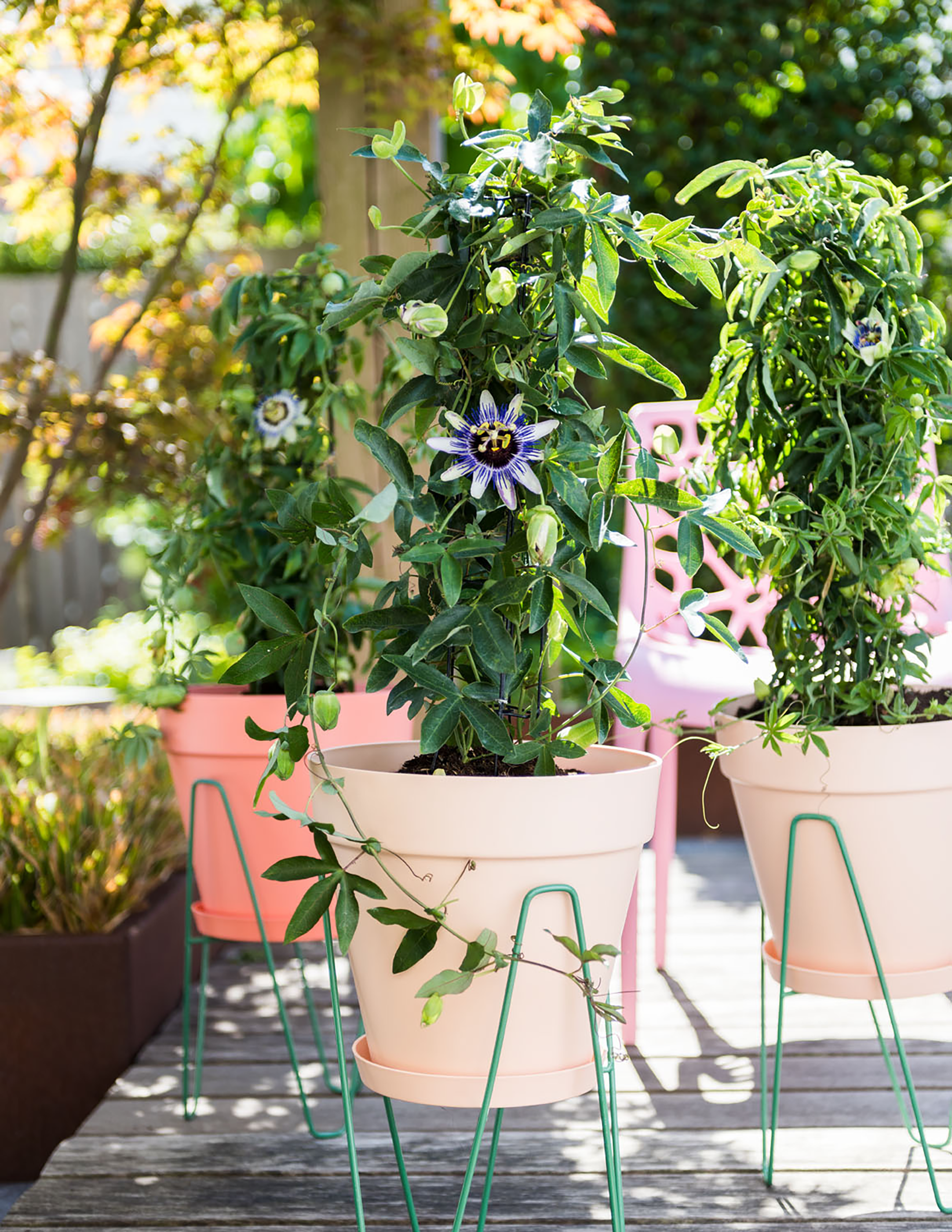
Container soil drying out through spring and summer will seriously inhibit growth, not to mention amp up the water bill. Though some Mediterranean plants like lavender, thyme, and rosemary will benefit from poor well-draining soil, others will need a soil-improving boost to make the most of their growing season.
'Most container potting soils contain mostly inert substrates. If you need a heavier mix that won’t dry out as quickly and can also release some nutrients for your plants, you can add organic amendments such as organic compost or humus, which can make up 15-30% of your mix for outdoor containers,' says expert Leslie.
So what should you amend garden soil with? 'Organic amendments such as worm castings (like these from Walmart) can help create a healthier root zone by improving microbial activity and releasing small amounts of nutrients, too.'
For particularly nutrient-hungry plants like roses, we recommend incorporating leaf mould or well-rotted manure into your organic compost, or using it as a good mulching layer to encourage healthy growth.
3. Encourage vigorous growth with pruning
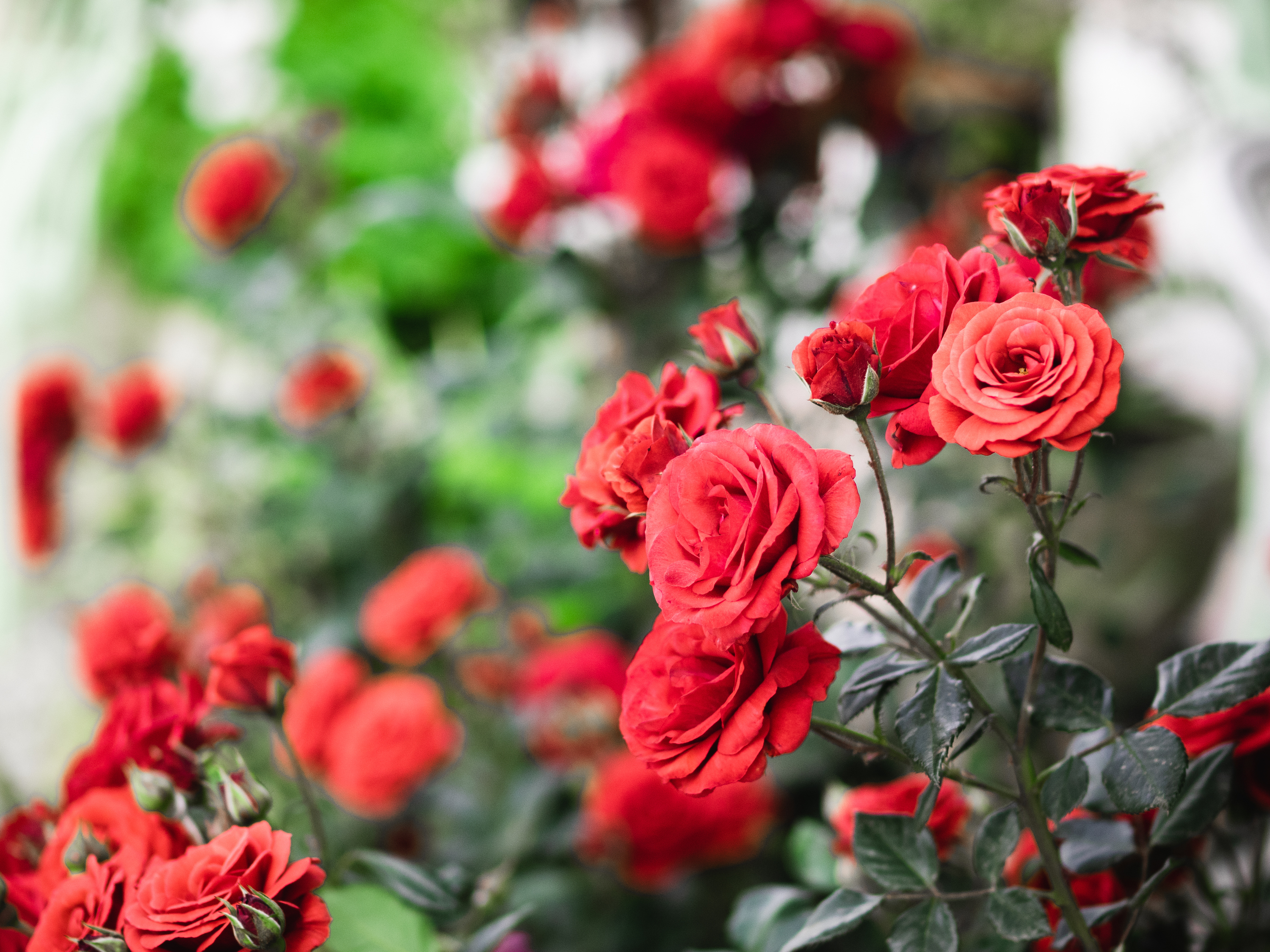
Though it may seem counter-productive, pruning certain plants this time of year encourages them to burst into life and promotes more vigorous growth throughout the season.
Expert Leslie explains: 'Pruning will encourage lateral branching of many plants, thus creating a bushier growing habit and keep out-of-bounds growers and assertive vining plants in check. Some flowering plants benefit from deadheading (removal of spent flowers) to encourage continued blooming. If, however, you’re growing fruiting plants, you’ll need to limit pruning once plants begin to flower.'
Container plants that benefit from pruning in spring are roses, lavenders (up to the fresh new green growth), camellias, and any ornamental grasses.
4. Choose fast-growing plant varieties
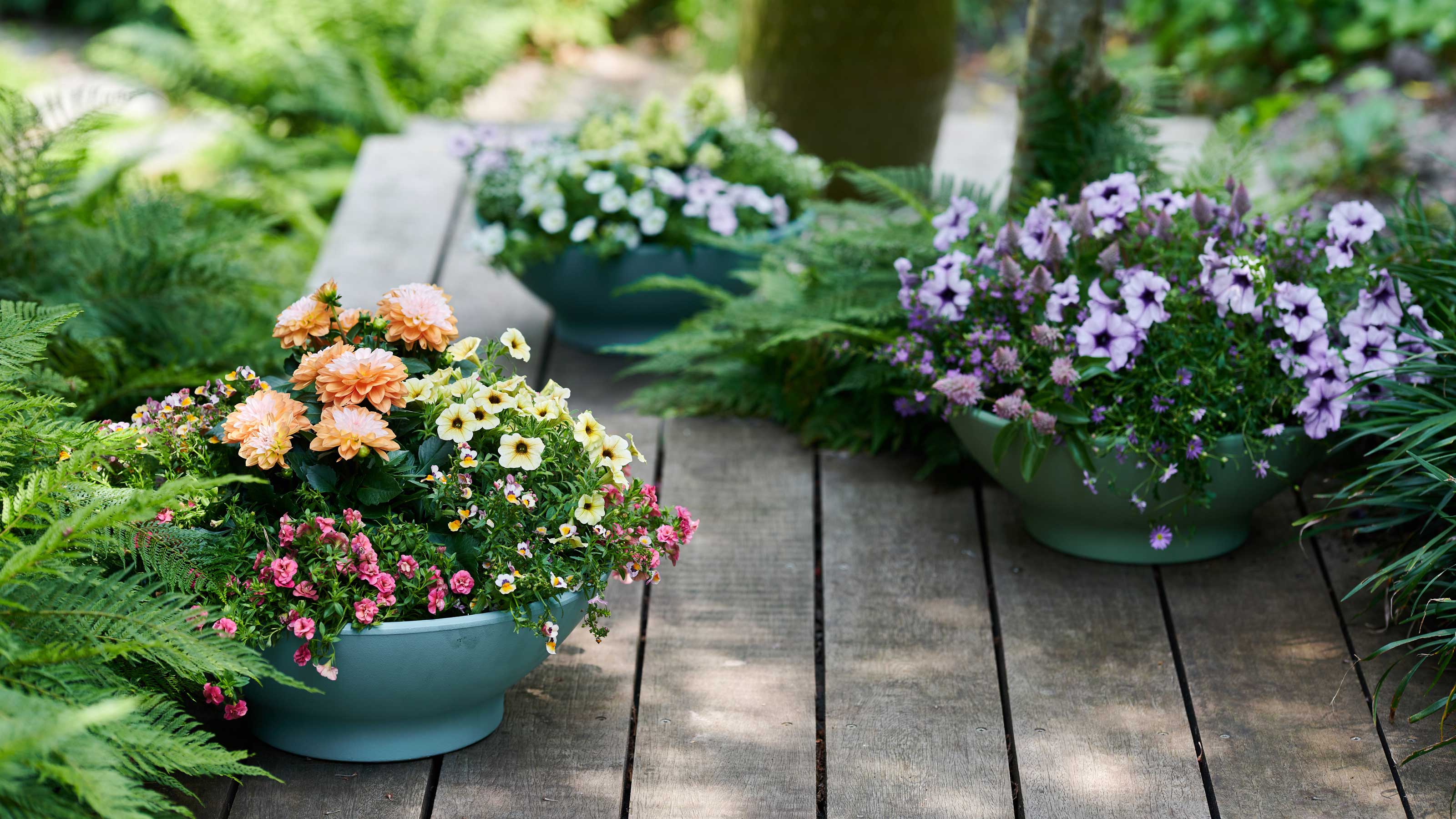
If your yard or balcony already has a good selection of slower-growing established container plants, then incorporating a few fast-growing perennials is a great way to breathe fresh life into older containers.
'I love to mix a variety of unexpected plants in containers, including veggies, fruits, and herbs along with grasses and flowers,' self-confessed ‘everythingist’ Leslie says. 'Silver cardoon Cynara cardunculus (like this one from Walmart) makes for a striking container specimen for sunny locations, and I love giant leopard plant Farfugium japonicum var. giganteum for pots in shady gardens.'
Or, if you’re after fast-growing container flowers without the commitment of perennials, try sprinkling your containers with a variety of annuals.
A great way to add seasonal interest and known for their fast-growing habits, annual plants like cosmos, geraniums and petunias will add a splash of color to containers or hanging baskets and flower all summer long. You can even grow them from seed with ease!
Matilda Bourne is a freelance homes, gardens and food writer, stylist and photographer. Known for creating and capturing content for multiple international brands, her work has been featured in The Telegraph, The Daily Mail, and Hello! magazine. When she’s not writing, you can usually find her tending to her much-loved garden and scouring thrift stores for vintage furniture.

